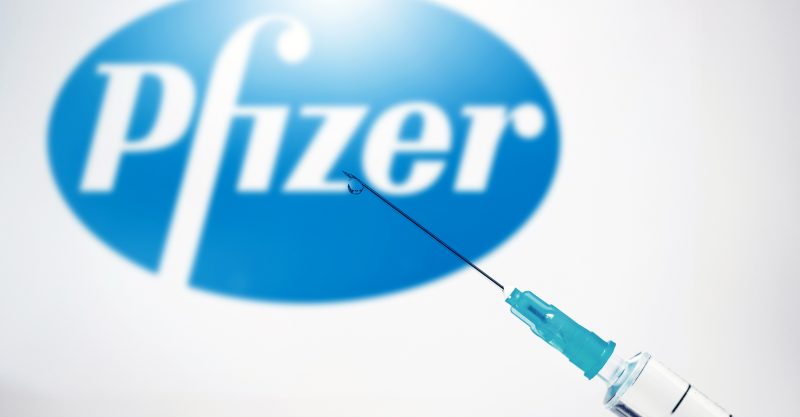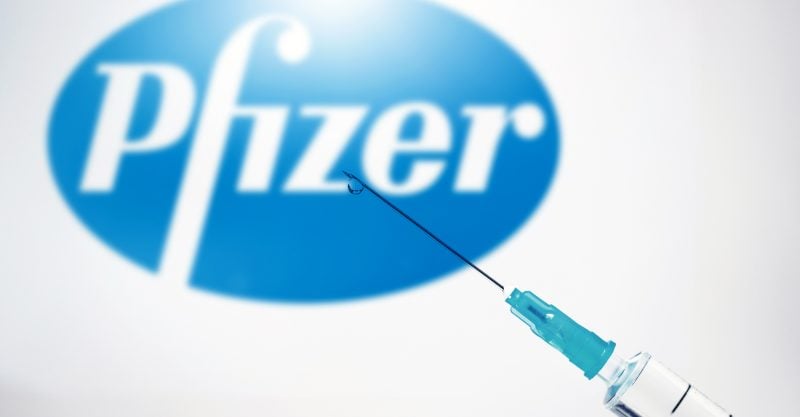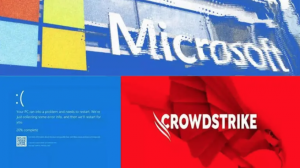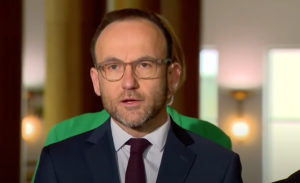Leaked Document Reveals ‘Shocking’ Terms of Pfizer’s International Vaccine Agreements

Story at-a-glance:
- A leaked document broken down by Twitter user Ehden reveals the shocking terms of Pfizer’s international COVID-19 vaccine agreements.
- Countries that purchase Pfizer’s COVID-19 shot must acknowledge that “Pfizer’s efforts to develop and manufacture the product” are “subject to significant risks and uncertainties.”
- In the event that a drug or other treatment comes out that can prevent, treat or cure COVID-19, the agreement stands, and the country must follow through with their vaccine order.
- While COVID-19 vaccines are “free” to receive in the U.S., they’re being paid for by taxpayer dollars at a rate of $19.50 per dose — Albania, the leaked contract revealed, paid $12 per dose.
- The purchaser of Pfizer’s COVID-19 vaccine must also acknowledge two facts that have largely been brushed under the rug: both their efficacy and risks are unknown.
- Purchasers must also “indemnify, defend and hold harmless Pfizer … from and against any and all suits, claims, actions, demands, losses, damages, liabilities, settlements, penalties, fines, costs and expenses … arising out of, relating to, or resulting from the Vaccine.”
Vaccine makers have nothing to lose by marketing their experimental COVID-19shots, even if they cause serious injury and death, as they enjoy full indemnity against injuries occurring from COVID-19 vaccines or any other pandemic vaccine under the Public Readiness and Emergency Preparedness (PREP) Act, passed in the U.S. in 2005.
The full extent of their COVID-19 vaccine indemnification agreements with countries, however, is a closely guarded secret, one that has remained highly confidential — until now. A leaked document broken down by Twitter user Ehden reveals the shocking terms of Pfizer’s international COVID-19 vaccine agreements.
“These agreements are confidential, but luckily one country did not protect the contract document well enough, so I managed to get a hold of a copy,” he wrote. “As you are about to see, there is a good reason why Pfizer was fighting to hide the details of these contracts.”
An ironclad agreement, all on Pfizer’s terms
The alleged indemnification agreement, reportedly between Pfizer and Albania, was originally posted in snippets on Twitter, but Twitter now has them marked as “unavailable.” Copies of the tweets are available on Treadreader, however.
The Albania agreement appears very similar to another contract, published online, between Pfizer and the Dominican Republic. It covers not only COVID-19 vaccines, but any product that enhances the use or effects of such vaccines.
Countries that purchase Pfizer’s COVID-19 shot must acknowledge that “Pfizer’s efforts to develop and manufacture the Product” are “subject to significant risks and uncertainties.”
And in the event that a drug or other treatment comes out that can prevent, treat or cure COVID-19, the agreement stands, and the country must follow through with their order. Ivermectin, for instance, is not only safe, inexpensive and widely available but has been found to reduce COVID-19 mortality by 81%. Yet, it continues to be ignored in favor of more expensive, and less effective, treatments and mass experimental vaccination.
“If you were wondering why #Ivermectin was suppressed,” Ehden wrote, “well, it is because the agreement that countries had with Pfizer does not allow them to escape their contract, which states that even if a drug will be found to treat COVID19 the contract cannot be voided.”
Even if Pfizer fails to deliver vaccine doses within their estimated delivery period, the purchaser may not cancel the order. Further, Pfizer can make adjustments to the number of contracted doses and their delivery schedule, “based on principles to be determined by Pfizer,” and the country buying the vaccines must “agree to any revision.”
It doesn’t matter if the vaccines are delivered severely late, even at a point when they’re no longer needed, as it’s made clear that “Under no circumstances will Pfizer be subject to or liable for any late delivery penalties.” As you might suspect, the contract also forbids returns “under any circumstances.”
The big secret: Pfizer charged U.S. More Than Other Countries
While COVID-19 vaccines are “free” to receive in the U.S., they’re being paid for by taxpayer dollars at a rate of $19.5011 per dose. Albania, the leaked contract revealed, paid $12 per dose, while the EU paid $14.70 per shot. While charging different prices to different purchases is common in the drug industry, it’s often frowned upon.
In the case of the price disparity between the U.S. and the EU, Pfizer is said to have given a price break to the EU because it financially supported the development of their COVID-19 vaccine. Still, Ehden noted, “U.S. taxpayers got screwed by Pfizer, probably also Israel.” Also, Pfizer makes a point to note that countries have no right to withhold payment to the company for any reason.
Apparently, this includes in the case of receiving damaged goods. Purchasers of Pfizer’s COVID-19 vaccines are not entitled to reject them “based on service complaints,” unless they do not conform to specifications or the FDA’s Current Good Manufacturing Practice regulations. And, Ehden adds, “This agreement is above any local law of the state.”
While the purchaser has virtually no way of canceling the contract, Pfizer can terminate the agreement in the event of a “material breach” of any term in their contract.
Safety and efficacy ‘not currently known’
The purchaser of Pfizer’s COVID-19 vaccine must also acknowledge two facts that have largely been brushed under the rug: Both their efficacy and risks are unknown. According to section 5.5 of the contract:
“Purchaser acknowledges that the Vaccine and materials related to the Vaccine, and their components and constituent materials are being rapidly developed due to the emergency circumstances of the COVID-19 pandemic and will continue to be studied after provision of the Vaccine to Purchaser under this Agreement.
“Purchaser further acknowledges that the long-term effects and efficacy of the Vaccine are not currently known and that there may be adverse effects of the Vaccine that are not currently known.”
Indemnification by the purchaser is also explicitly required by the contract, which states, under section 8.1:
“Purchaser hereby agrees to indemnify, defend and hold harmless Pfizer, BioNTech, each of their Affiliates, contractors, sub-contractors, licensors, licensees, sub-licensees, distributors, contract manufacturers, services providers, clinical trial researchers, third parties to whom Pfizer or BioNTech or any of their respective Affiliates may directly or indirectly owe an indemnity based on the research …
“from and against any and all suits, claims, actions, demands, losses, damages, liabilities, settlements, penalties, fines, costs and expenses (including, without limitation, reasonable attorneys’ fees and other expenses of an investigation or litigation … arising out of, relating to, or resulting from the Vaccine …”
Meanwhile, the purchaser must also keep the terms of the contract confidential for a period of 10 years.
The views and opinions expressed in this article are those of the authors and do not necessarily reflect the views of Children’s Health Defense.









